Halfway through its network journey, the partners of Cities After Dark, the first URBACT network focused on the night-time economy, reflect on the impact of their Testing Actions and how these are contributing to the development of Integrated Action Plans, making the night more accessible, enjoyable and inclusive.
Strolling through Eleftheria Square, pedestrians were surprised to find a group of DJs of all ages testing their consoles in the afternoon, almost as if rehearsing for something bigger supposed to be happening there. The surprise turned into excitement when the night fell and the DJs began to play, transforming the Zaha Hadid-designed square, usually unused at night, into an open-air dancefloor for one night.
The event marked the beginning of a series of training activities for aspiring night professionals, organized by Nicosia as Testing Action within the network Cities After Dark. These workshops targeted aspiring night entrepreneurs, cultural actors and musicians, responding to a key need identified through the participatory process by Nicosia’ URBACT Local Group: creating more opportunities for young people interested in working in the nightlife sector.
Unleashing the untapped potential of the different dimensions of the night-time economy and fostering new collaborations between city services, cultural actors and the business sector were the main goals that Nicosia and the other partners of Cities After Dark committed to achieve with the implementation of the Testing Actions. These actions were co-designed with the local partners involved in the URBACT Local Groups, with the objective of validating ambitious approaches on the night-time economy, a topic that many cities of the network were exploring for the first time.
Destigmatizing the night for enhancing community cohesion
The Testing Actions of Cities After Dark reflected the vibrant conversations among the partners of the network, which explored different dimensions of the urban life between 6 p.m. and 6 a.m. – ranging from the creation of new public services during nocturnal hours to enhancing the use of public spaces and green areas after dark. These initiatives also reflected the variety of the international experiences explored at the occasion of night tours organized during the Transnational meetings, thematic online seminars and study visits, including the one carried out in Berlin in April 2024.
Among the various experiences developed by the Berlin’s ClubCommission, the first collaborative governance body for the night-time economy in Europe, their annual Tag der Clubkultur (Club Culture Day), where night venues open their doors to local residents, inspired some of the partners to develop similar initiatives as Testing Actions.
For Braga, leading Cities After Dark marked its first opportunity for connecting the local administration and the night-time economy sector. The organization of a public event showcasing the variety of the urban nightlife contributed to highlight the importance of the night-time economy and foster stronger ties with the local communities as a way to foster balance among diverse needs.
The Braga After Dark Fest was co-designed with DJs, cultural actors, bars and clubs’ owners involved in the URBACT Local Group as a public celebration of the city’s vibrant nightlife, with the objective of making the night-time sector more visible to diverse audiences. Hosted in the central Praça da Republica, the one-day festival featured DJ sets, concerts and performances from 7pm onwards and provided an important opportunity to underscore the importance of the night-time economy for inclusive urban growth and improved quality of life for all.
Through the festival, Braga recognized the need to promote its night-time industries to both residents and tourists using innovative approaches and tools, like the Braga After Dark booklet, distributed in city’s hotels and highlighting the best places to visit at night. With these actions, Braga emphasized the role of the night venues in fostering cultural and economic growth, creativity and community cohesion, while also helping mediate between competing interests.
Towards the 24-hour city
The diversification of the night-time activities and the extension of services to nocturnal hours emerged as core themes in the local conversations on night economy fostered by the ULGs across several cities of the network.
Genoa and Piraeus, both home to major Mediterranean ports and thus a long tradition of urban life after dark, tested innovative measures to validate their innovative approach to the night economy developed within Cities After Dark.
In Genoa, the pilot extension of public transport to suburban areas during nocturnal hours enabled the organization of a series of night events beyond the traditional night hotspots of the city centre. Creating a nightlife that is diverse, plural and inclusive is at the core of the vision developed by the URBACT Local Group, that collaborated in the organization of several activities at the 17th-century palace Villa Bombrini, including guided night tours, harm reduction workshops and a DJ set.
The Testing Action gave many Genoese residents the chance to discover unconventional night venues, highlighting their potential for a more inclusive nightlife of proximity but also for improving the quality of services and public spaces in nocturnal hours.
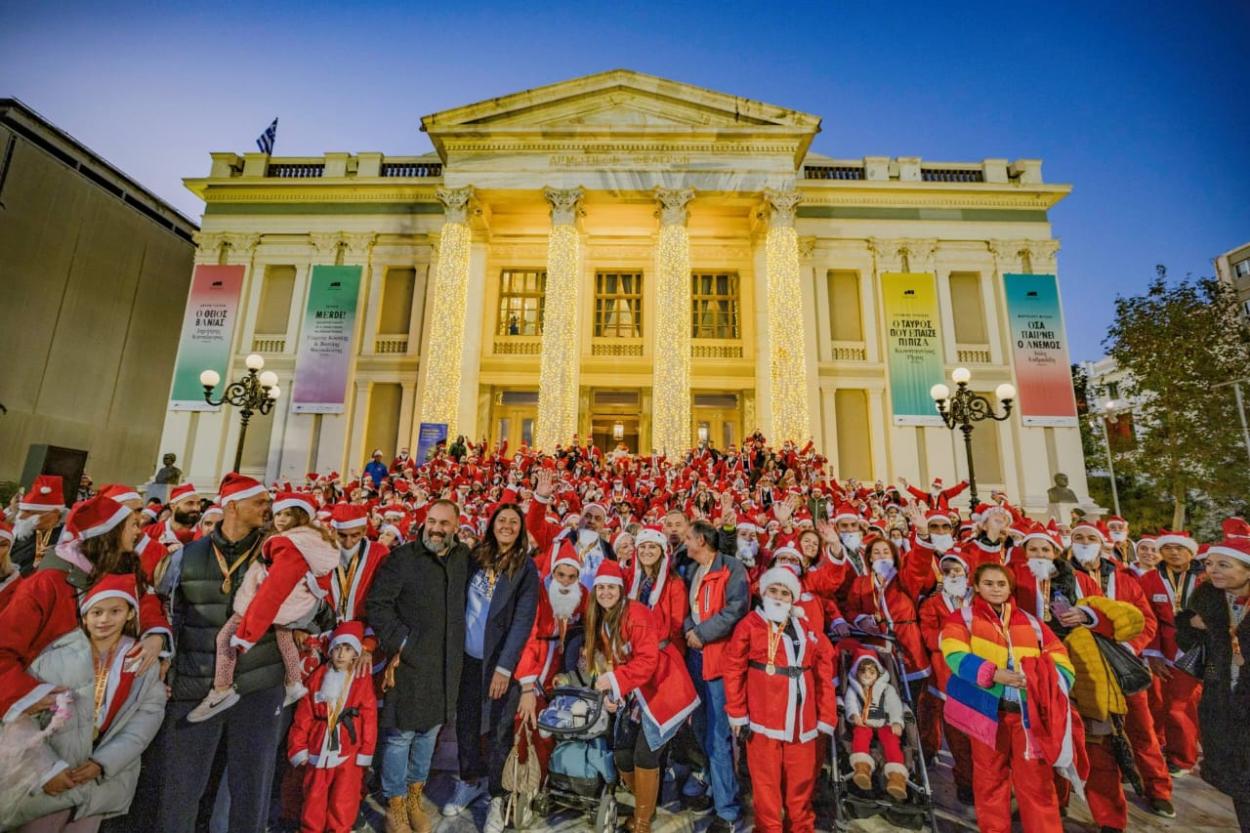
In Piraeus, the expansion of city thematic festivals and sport activities during the nocturnal hours and the extension of the opening time of shops and restaurants were at the core of the Testing Action, aimed at validating the city’s forward-looking approach for creating a more vibrant and safer city at night.
The transformation of the traditional Santa Run from a daytime activity into a nighttime celebration infused fresh energy to the event and inspired greater public participation, with over 1,000 participants dressed in red and white who invaded the streets of the city in a festive mood. 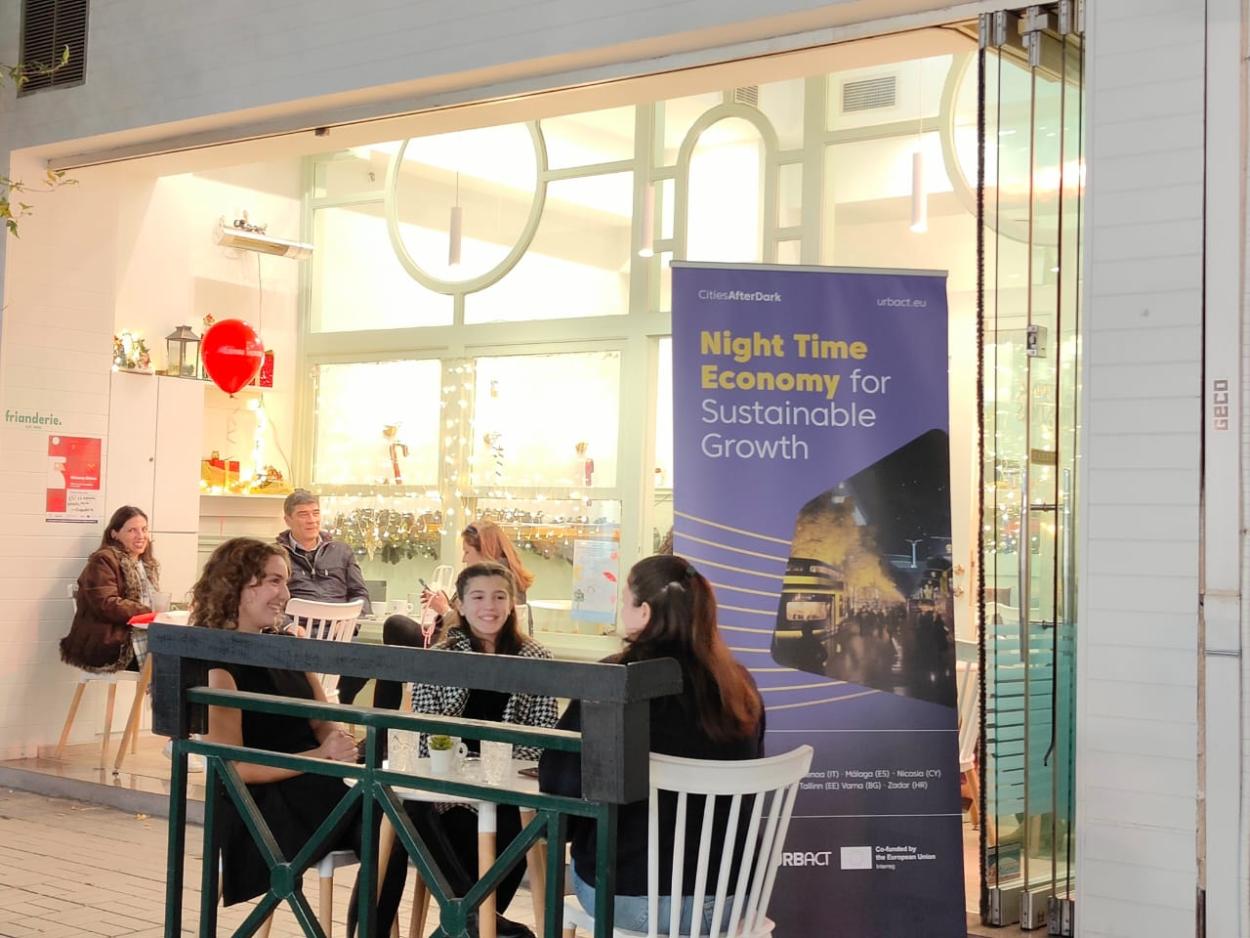
Coupled with the extension of the opening times of shops and restaurants in the weekend preceding Christmas, which hosted creative activities such as DJ sets and artistic performances until late, the Testing Action revitalized the city centre and paved the ground to the implementation of innovative actions which are part of the Integrated Action Plan. These actions include the night opening of the public library and the creation of a calendar of night events featured on the city's official tourism website DestinationPiraeus.gr, which will improve access to city services and events after dark for both locals and tourists.
Night-time as a space for inclusion and respect
Cities like Paris and Tallinn, which already developed integrated night policies in the last few years, used the Testing Actions of Cities After Dark as powerful opportunities for addressing challenges that emerged from the dialogue with local stakeholders but were not yet addressed within their action on night-time economy.
In Paris, the URBACT Local Group developed a vision centered on the principle of the “care at night”, which fostered a broader reflection on how to promote the principles of respect, tolerance and non-judgment within the night-time economy, with the objective of promoting responsible behavior and prevent the risks associated with festive practices.
These principles were incorporated in the workshops and events of the Marateuf festival, a 42-hour event organized in late Spring which promoted the concept of care within the party scene while activating venues and NGOs which are strictly collaborating with the local authority in creating inclusive and sustainable night-time activities.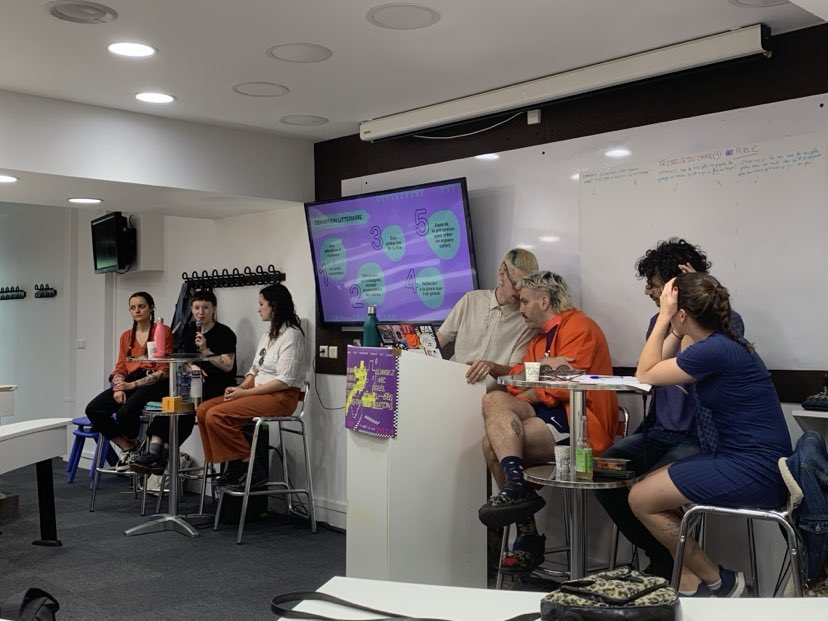
Iconic venues like La Bellevilloise, Point Ephemere and La Citè Fertile hosted workshops and debates which helped to popularize the conversation on respectful behavior, engaging participants in the development of new activities for harm reduction and preventing sexual violence.
Involving local youth in night-time activities co-designed directly with them was the main objective of the Testing Action carried out by Tallinn, which focused on the target group of youth aged between 14 and 18 years old, often excluded from nightlife discussions.
The youth activity night held at Kanuti Garden featured a variety of workshops to help young people develop their creative potential, like rapping and DJing workshops, cooking classes, tattoo laboratories or self-defense training for girls. The event also involved the local police board, which provided advice on road safety, and ended with a dance camp, with dance classes led by professional instructors on stage.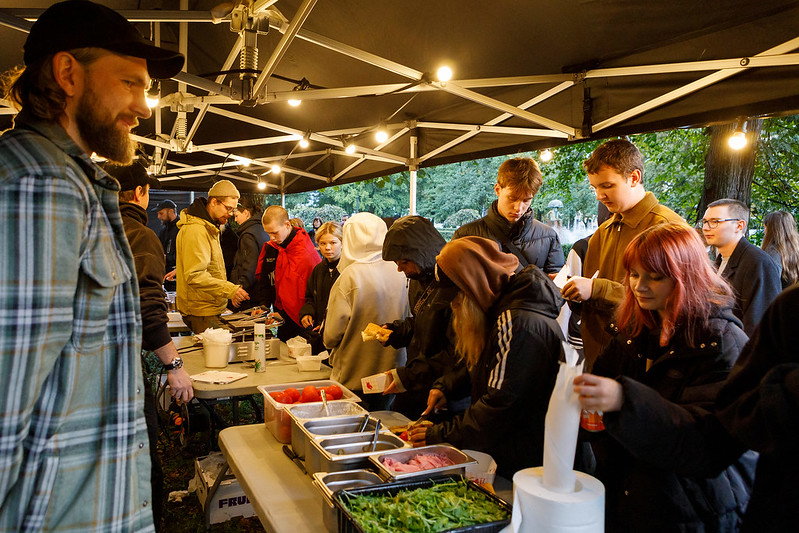
The Testing Action of Tallinn created a safe and open environment for local youth, with engaging activities organized in parks and public spaces, but also highlighted the need for enhancing the active participation of local youth in planning and implementing night events. Furthermore, it underscored how public spaces can foster inclusive night-time activities beyond the traditional night venues.
The creation of the so-called “third spaces” for making night-time activities accessible to everyone is a priority also for other partners of Cities After Dark, like Zadar, Budva, Varna and Malaga which are going to test the use of public spaces outside historical city centres to host innovative night-time activities for the residents.
Testing Actions with an impact: towards collaborative night policies
The Testing Actions contributed in a decisive way to validate the innovative approaches to the night-time economy developed with the visions and the strategic objectives co-designed through the URBACT Local Groups of the partner cities.
During the Mid-Term Reflection carried out in the framework of the Transnational Meeting of Malaga in January, 8 out of 10 partners rated the Testing Actions as very or extremely useful for the IAP co-production process, while 6 partners out of 10 revealed to have implemented more than one testing action at local level.
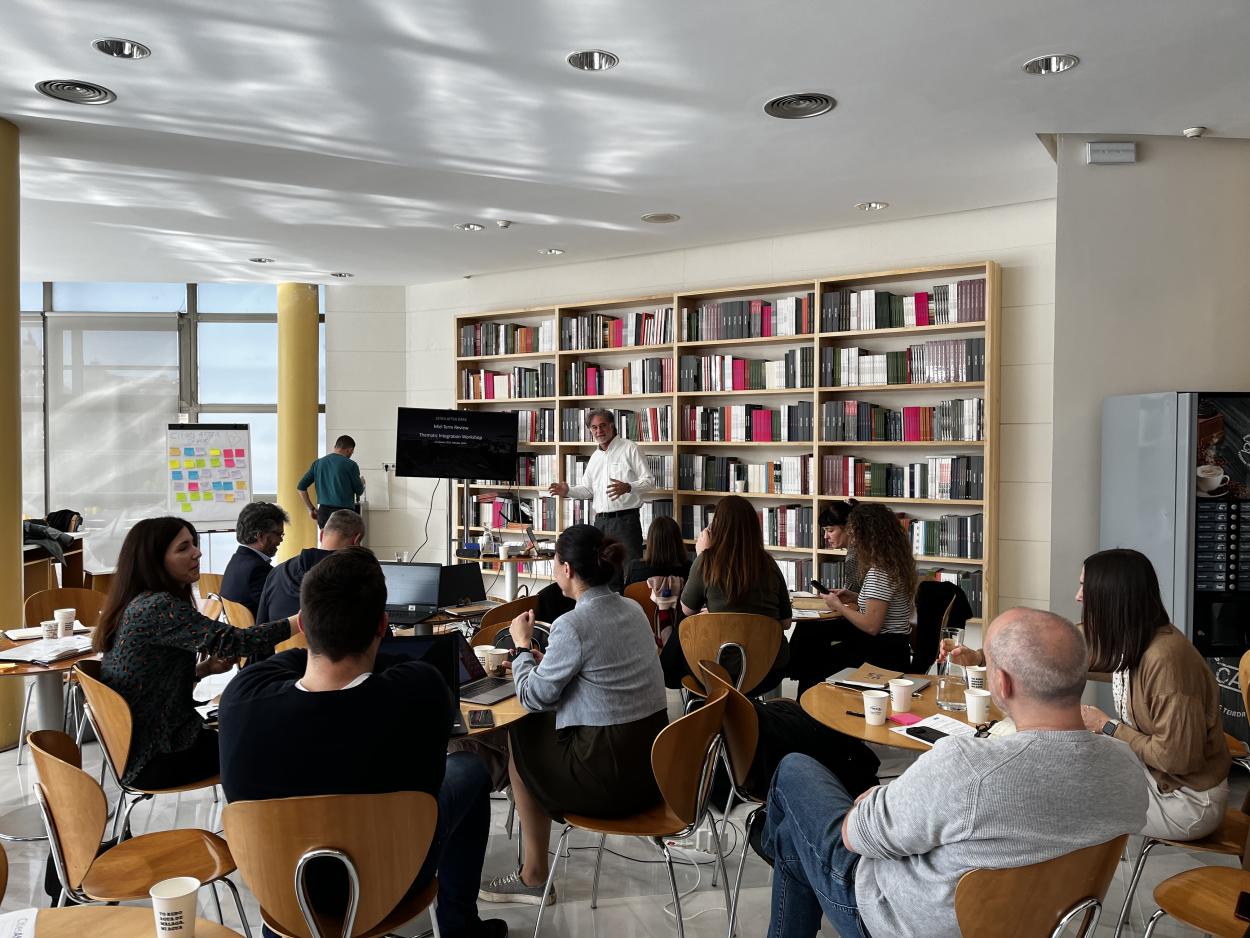
Some cities of the network, like Piraeus and Nicosia, found the testing actions particularly effective for engaging more stakeholders in the URBACT Local Group, enhancing their active participation in view of the consolidation of collaborative frameworks for the governance of the night-time economy.
The exploration of innovative solutions on the use of parks and public spaces in nocturnal hours or for the development of new skills among night professionals was not only useful to bring innovative perspectives on night-time economy in cities that are working for the first time in an integrated way on the topic. This action is also positioning the partners of Cities After Dark on the forefront of the European and global debate on night-time economy, with their approaches that are putting in practice the right to the city at night for all, while creating the conditions for a balanced development of business activities, cultural venues and innovative services, including 24-hour nurseries, libraries and study rooms.
